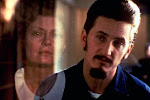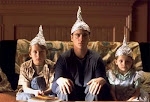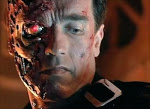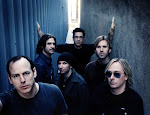 Beowulf stars Ray Winstone as Beowulf, Anthony Hopkins as Hrothgar (the former king of Denmark), Robin Wright Penn as Wealthow (the queen) and Angelina Jolie as the Demon Queen.
Beowulf stars Ray Winstone as Beowulf, Anthony Hopkins as Hrothgar (the former king of Denmark), Robin Wright Penn as Wealthow (the queen) and Angelina Jolie as the Demon Queen.
Beowulf demonstrates yet again how people are learning through cinematic interpretation. It says a lot that I was never forced to read Beowulf as a child, but I saw the movie as an adult.
Movies tend to stray from original works, usually by way of omission. Film producers have to adapt stories according to how much information they can pack into two hours and, more importantly, according to what will entertain the the most people. It is easier to watch a movie than read a book. People are depending on movies more and more to obtain knowledge.
As for the movie Beowulf, I thought the animation was going to be... better. It looked exactly like Shrek.
Interesting note: Beowulf was tempted by the two main temptations to which men fall prey: Sex and Power.
Evidently news of Jesus Christ ("the new Roman God") spread as far as Denmark by 500 AD. Someone mentioned that maybe they should pray to Jesus Christ since the Romans respect Him but Hrothgar dismisses this saying what they really need is a (human) hero. Later on Beowulf honors Jesus Christ by giving Him credit for disarming men's natural understanding of heroism, which is physical prowess and extravagant self-confidence. Beowulf admits that Jesus had transformed people's idea of a hero into a "weeping martyr." Whereas Beowulf honors himself by killing others before they can kill him, Jesus let Himself be killed to honor the Father. Truly, this is a far cry from what men naturally admire. Beowulf was a champion amongst men for his manliness. Jesus is champion over the universe for His Godliness.
Beowulf Honors Jesus
Who Killed the Electric Car?
 Who Killed the Electric Car? documents GM's fleeting attempt to produce an electric car (the EV1). The film is poignant and yet all around fair. It puts forth a candid history of the electric car without any detectable malice or lopsided agenda.
Who Killed the Electric Car? documents GM's fleeting attempt to produce an electric car (the EV1). The film is poignant and yet all around fair. It puts forth a candid history of the electric car without any detectable malice or lopsided agenda.
So who killed the electric car? Here are the possibilities.
-- The Federal Government. The state of California builds a few years of momentum for the wide-spread use of electric vehicles until the federal government steps in to curtail this effort.
-- Big Oil Companies. They buy out federal legislators who will keep fossil fuel in business. They also buy out any up-and-coming technology that might threaten their archaic combustible energy.
-- Car Manufacturers. Electric cars require less maintenance, which poses a significant financial loss to car companies. Gas-powered cars contain dozens of parts that are designed to wear out before long, which keeps customer's paying for the car long after they purchased it the first time.
So what does this have to do with Spirituality, or God?
There is one overarching issue driving the conflict between oil and electric power: Sin. The dishonesty, greed and extravagant thievery of big oil companies is oppressing the whole world, both humanity as well as the environment we need to keep living in. Who Killed the Electric Car? communicates this in an admirably civil and understandable manner.
One of the main strengths of America is the conviction that people need to be free. This stems from the fact that God designed people to live free, not as robots or slaves. God endows everyone with the priceless gift of free will -- the opportunity to choose.
Americans have been successful because the U.S. government is designed to keep out of the way. However, the U.S. government is designed to intercede if the people's freedom are ever at risk. Big Oil continues to stifle the American people's freedom. The most obvious explanation for this is: Big Oil has infiltrated American legislation.
The mentality of Big Oil demonstrates the shortsightedness and general stupidity of sin. By their unfair business practices the CEOs of oil companies are destroying the economic framework that made them rich in the first place. Who will pay for their overpriced gasoline after everyone is stripped bare from overpriced gasoline?
A hundred million dollars won't quench their love for worldly junk... they need hundreds of millions of dollars. In this way, lovers of this world might accumulate more than everyone else, but what good is all the junk in the world if it costs them their soul?
Perfume: The Story of a Murderer -- Untrustworthy Senses
 Perfume stars Ben Whishaw as Jean-Baptiste Grenouille, Dustin Hoffman as Giuseppe Baldini and Alan Rickman as Richis.
Perfume stars Ben Whishaw as Jean-Baptiste Grenouille, Dustin Hoffman as Giuseppe Baldini and Alan Rickman as Richis.
(Warning: Plot Spoilers Ahead)
Jean-Baptiste is so zealously dedicated to his trade that he kills young women to extract their scent. He eventually makes a perfume that overwhelms other people's ability to think rationally.
General Theme: Our fleshly senses are not dependable for moral guidance.
Toward the end of the movie, Jean-Baptiste is brought before a crowd of people to be executed for his numerous murders. But Jean-Baptiste knows how to win them over: By appealing to their fleshly senses. So he pours a little of his masterpiece perfume on a handkerchief and waves it over the crowd. When they catch the scent they forget all about Jean-Baptiste, get naked and have a huge orgy out in the open air. They yell, "This man is not a criminal, he is an angel!" Even the "holy" bishop, who is supposed to be the people's moral guide, bows down before Jean-Baptiste's fleshly accomplishments.
Richis was more determined than everyone else in his town to protect his daughter, Laura, and bring Jean-Baptiste to justice. But his daughter's death kept him sober only a little longer than everyone else. Just like everyone else, Richis, the father of a murdered daughter, gave way to his fleshly senses.
The point is not that orgies are bad (though they are) or that the Catholic church has a misguided sense of God's justice (though it does). The point is that our fleshly senses are not dependable for moral guidance.
Our flesh wants to take care of itself, that's all it can think to do. This is good so far as we shouldn't take our lives for granted. But God designed us for much more than self-preservation, especially when self-preservation turns into reckless indulgence.
2
comments
![]()
![]() Tags:
Dustin Hoffman,
Perfume
Tags:
Dustin Hoffman,
Perfume
Perfume: the Story of a Murder
 Perfume stars Ben Whishaw as Jean-Baptiste Grenouille, Dustin Hoffman as Giuseppe Baldini and Alan Rickman as Richis.
Perfume stars Ben Whishaw as Jean-Baptiste Grenouille, Dustin Hoffman as Giuseppe Baldini and Alan Rickman as Richis.
General theme: Anyone can advance themselves in either taintedness or purity. We all are given the choice to dive deeper into either darkness or light.
Jean-Baptiste's mother introduces him to a gross neglect for human life from the first moment he is born. He was a special person for his extraordinary ability to detect scent but, in light of his lamentable beginnings, it is not surprising that he utilizes his gift for evil. This hints at the general truth that we inherit our parent's sin. How we deal with that inheritance is up to us.
Jean-Baptiste is affected by his absence of self-worth. According to other people's actions, he concludes that he is insignificant. He also lacks scent, which, according to his central purpose in life, would imply that he is worth noticing. This also aides in his decision to kill without remorse. The less regard people have for their God-given worth, the easier it is to dive into selfishness and indulgence, even at the expense of others.
He is a young man overcome with youthful lust. Where most young men are slaves to visual lust, Jean-Baptiste lusts after scent. He resembles any sex-crazed young man who cannot imagine a healthy outlook on the opposite sex.
As Perfume demonstrates, lust pushes out all consideration of others and eventually even rational thought.
1 comments
![]()
![]() Tags:
Dustin Hoffman,
Perfume
Tags:
Dustin Hoffman,
Perfume
Kingdom of Heaven -- The Crusades Are Not An Excuse
 It happened again the other day. I was talking to someone, then God entered the conversation. Then the Crusades entered the conversation. Then God exited the conversation.
It happened again the other day. I was talking to someone, then God entered the conversation. Then the Crusades entered the conversation. Then God exited the conversation.
Many people use the Crusades to excuse their disbelief in Jesus Christ. This is silly because the people who inspired the Crusades had nothing to do with Jesus Christ. The army that marched around with crosses on their armor was not Christian.
As soon as people hear that such an easy-to-remember event in history can be used to excuse their disbelief, they clench their minds around it like a steel trap. The irony of this situation is, while people speak out against the injustice of the Crusades, they are actually thankful for the convenience of this alibi, which serves to ease their consciences a little bit.
If not the Crusades, then people would use some other excuse such as, "This one person who said he was Christian was mean to me," or "I can't believe in Jesus Christ right now because I've got bills to pay."
Disbelieving in Jesus Christ because of the Crusades is like dropping out of school because you heard that one time a man said he was a professor when he was actually a serial killer.
The "Christian" crusaders wore crosses on their uniforms, but this did not make them Christian. A Christian is someone who follows Jesus Christ by obeying His direct commands and, in general, by following His example. There might have been some crusaders who were Christian (incidentally) but the overall motivation behind the Crusades was not Christian.
Jesus says: "My kingdom is not of this world. If my kingdom were of this world, then my servants would be fighting so that I would not be handed over to the Jews (people who threaten to harm me physically)." (John 18:36)
As long as humanity remains evil, war will be inevitable. It demonstrates the insecurity of men that they would say, "You'd better submit to me or I'll shoot you." But Jesus is not so insecure. Jesus advocates a kind of battle that does not depend on physical tools of war, but rather only God's Spirit. Jesus teaches His followers to depend on the Spirit to transform people's hearts and minds. Christians (Christ-followers) don't need to hold a gun to anyone's head, we have a far more powerful Weapon.
The Crusades were a misguided attempt to secure the "Holy Land." But Balian understood that God, if He is God, values human life more than land or buildings (according to his address to the people just before the fighting started). Balian also understood that God values life more than man-made superstition (He ordered the accumulation of corpses to be burned against the counsel of the local priest, who thought this would prevent God from resurrecting them later).
Jesus said to the woman at the well, "An hour is coming, and now is, when the true worshipers will worship the Father in spirit and truth; for such people the Father seeks to be His worshipers. God is Spirit, and those who worship Him must worship Him in spirit and truth." Balian seemed to understand this better than his peers, which led him to fight for people's lives rather than religious dirt. This fact ended up saving innocent people's lives.
300 (starring Gerard Butler) -- God's Priorities
 According to the movie 300, the Spartans were obsessed with superficialities. They were so distracted by their arbitrary standards for perfection that they threw innocent children away like garbage.
According to the movie 300, the Spartans were obsessed with superficialities. They were so distracted by their arbitrary standards for perfection that they threw innocent children away like garbage.
God does not (and should not) allow such civilizations to last very long. We Americans should take heed of this.
The further we stray from God's priorities the closer we get to sharing in Sparta's fate. Our godlessness already resembles that of the Spartans by the way we kill unborn children in the name of convenience or chop them up in the name of science.
We will be strong to the extent that we embrace godly ideals, which include caring for the needy, protecting the vulnerable and following our consciences.
There is a secret strength in trusting God. However, if we go on trusting our intellectuality or physical strength instead of God we will go on destroying ourselves and the world around us.
2
comments
![]()
![]() Tags:
300,
Gerard Butler
Tags:
300,
Gerard Butler
Blood Diamond (starring Leonardo DiCaprio) -- Battling Injustice
 Blood Diamond depicts the bleak life that awaits many African children. This movie demonstrates strategic evil.
Blood Diamond depicts the bleak life that awaits many African children. This movie demonstrates strategic evil.
African militants, or rebels, kidnap young boys and disciple them into senseless killers. The rebels know that the children will have qualms about shooting people so they set out right away to desensitize the children's consciences. These seasoned killers know from experience that forcing boys to commit horrendous atrocities will callus their minds and therefore make it possible for them to continue committing such atrocities. It is common practice for rebels to put guns in boys' hands and then force them to shoot their fellow villagers. Once the boys' hearts and minds are sufficiently annihilated, they are ready to follow in the footsteps of their captors and become mindless killers themselves.
Most of us can recognize that this is unjust. We recognize that a lot of things are unjust in the world. So what? Why should we care? How can we care?
Going head-on against issues is necessary. We should help every person we can, one at a time.
There is also a need for a general awakening to God's priorities, or God's justice.
If we want to know what is right and wrong, we need only ask God and He will educate us. He will teach us how to care. When we genuinely care about injustice we will listen to God better and He will show us how to do something about it.
The best way to teach the people about justice and injustice is through the gospel.
Jesus' death on the cross is the ultimate lesson in right and wrong. He offset injustice in the world by taking the world's injustice on Himself.
The fact that Jesus conquered sin is the most relevant truth in the world for anyone who wants to change the world. This truth puts power and purpose behind our efforts to help others.
Only after we take care of their business with God will we care about loving our neighbor. Christ Himself will empower, encourage, teach and support us for this purpose.
V for Vendetta (starring Natalie Portman)
 "V" tells people to look at themselves as the culprits for England's condition. Such is also the case for this American democracy... our delegates' values reflect the our values.
"V" tells people to look at themselves as the culprits for England's condition. Such is also the case for this American democracy... our delegates' values reflect the our values.
Since American politicians are corrupt, this tells us a few things about ourselves: (1) We are corrupt. Otherwise politicians wouldn't feel so at home compromising their obligations to the people. (2) We are too fearful to resist corruption. (3) We can't imagine how to live apart from corruption, therefore we are helpless to resist it, even if we have misgivings.
The United States as a whole will be as smart, as morally upright and as prosperous as it's general population... this is both a strength and a weakness of democracy.
Pirates of the Caribbean -- No Fellowship Amongst Thieves
 Pirates of the Caribbean is one of the highest quality movies I have ever seen. Johnny Depp is clever. The plot ties together brilliantly. There's lots of funny stuff.
Pirates of the Caribbean is one of the highest quality movies I have ever seen. Johnny Depp is clever. The plot ties together brilliantly. There's lots of funny stuff.
But... although Pirates is meant to be whimsical, it communicates a lot of misleading romanticisms about being a pirate.
There can be no fellowship or any kind of life worth mentioning amongst those who thieve and lie for a living. Pirates cannot be friends because such a trusting relationship grinds against everything they believe in.
Notice how there are resolutions to Jack Sparrow's or Will Turner's problems whenever they don't act like pirates. Jack saves Elizabeth, which gets him jailed straight away, but it eventually opens up all the possibilities he was looking for to retrieve the Black Pearl. At the end of the movie Jack's friends go against "The Code" to pick up Jack and take him back to sea. When Will and Jack risk their necks for each other, they both end up winning.
Doing the right thing, even if it costs us something, is the most efficient way to get right with ourselves, our relationships and the world around us.
Like any other movie about crime versus justice, Pirates makes it hard to remember that crime is not good. Is it OK that we're entertained by all the things we know to be wrong?
When we watch a movie about detectives tracking down a serial killer, our moral instincts keep us glued to the screen. We know in our consciences that the law must prevail or else evil people will prey on the innocent. We also care about criminals getting caught because we have a healthy fear of what will happen to us if they continue to get away with murder.
A related deception relates to movies that portray one rebellious guy who saves the day by breaking all the rules. Rebellion is not a good thing in itself. We should seek after good, not just avoid evil.
Superbad ... why not Super-good?
 From the producer of Knocked Up and 40 Year Old Virgin comes Superbad, a movie about three high school guys, Seth, Fogell and Evan, who embark on a journey of self-discovery, sex and booze. This film is loaded with comical scenarios that are so wrong, it’s funny!
From the producer of Knocked Up and 40 Year Old Virgin comes Superbad, a movie about three high school guys, Seth, Fogell and Evan, who embark on a journey of self-discovery, sex and booze. This film is loaded with comical scenarios that are so wrong, it’s funny!
Many people embrace the idea that “bad is good” during high school and never grow out of this for the rest of their lives. Somehow high-schoolers learn that the only way to feel right is to do that which they know in their consciences to be wrong. Anyone brave enough to resist this phenomenon is ridiculed by the cowardly majority.
Such foolishness continues on into adulthood. Adults laugh at situations that are “wrong” or “dirty.” Grown-ups brag about their super-bad deeds expecting to impress their co-workers.
Human beings desire evil naturally, therefore people try to fellowship with their peer by doing evil together. It makes sense, therefore that what’s wrong should come off as funny or cool.
Why isn’t bad called “bad” and good called “good?”
Few and far between are those who stick to what’s right for the sake of sticking to what’s right. These are the truly courageous, trustworthy and free-thinking minority. If not for the few who are bold enough to do what’s right, the world would be a terrible place to live in.
4
comments
![]()
![]() Tags:
Superbad
Tags:
Superbad
The DaVinci Code
 This movie is crazy. Scandalous. Shocking! The Catholic church has been plotting against... people... who want to believe... something else... since the time that Jesus walked the earth. That's right, the Catholic church has been covering up the most shocking scandal since whatever you read last week in the tabloids. You've heard of Jesus, right? He's some random guy who lived a couple thousand years ago. One day He was driving down the road when He noticed a young lady pulled over with a flat tire. Her name is Mary Magdalene. Of course, He pulled over to help her out. A few years later He dies on a cross. Then He rises from the dead. He is about to ascend into heaven to sit at God's right hand when He realizes suddenly that He has a serious crush on His old friend, Mary. So they get married, settle down in a nice nieghborhood, have a couple of kids and retire at the age of 65. Crazy, huh?
This movie is crazy. Scandalous. Shocking! The Catholic church has been plotting against... people... who want to believe... something else... since the time that Jesus walked the earth. That's right, the Catholic church has been covering up the most shocking scandal since whatever you read last week in the tabloids. You've heard of Jesus, right? He's some random guy who lived a couple thousand years ago. One day He was driving down the road when He noticed a young lady pulled over with a flat tire. Her name is Mary Magdalene. Of course, He pulled over to help her out. A few years later He dies on a cross. Then He rises from the dead. He is about to ascend into heaven to sit at God's right hand when He realizes suddenly that He has a serious crush on His old friend, Mary. So they get married, settle down in a nice nieghborhood, have a couple of kids and retire at the age of 65. Crazy, huh?
Enter Tom Hanks, the true good guy in this story. The church wants people to believe that Jesus is the Savior of the world, but Tom Hanks figures out that Leonardo DaVinci said otherwise. It turns out that DaVinci hid tons of secret information in his paintings that, if discovered, would destroy the institutional church and thereby set the world free from the oppressive hope that comes from having faith in God. Take the last supper, for example: Jesus is leaning away from Mary Magdalene. Well? Need i say more? This means that Jesus was madly in love with her, duh!
Tom Hanks manages to figure this out despite a group of crazed clerics who want to kill him. There is one pale-skinned cleric in particular (Paul Bettany) who is like a guardian angel for one of the higher-up bishops. He's like an angel except that he flagellates himself, cuts himself with metal and wantonly kills people. Don't try to hide your shock, this might actually be true!
0
comments
![]()
![]() Tags:
Da Vinci Code,
Tom Hanks
Tags:
Da Vinci Code,
Tom Hanks
Blink by Ted Dekker -- Seth's Faulty Logic
 Seth is the main character of Ted Dekker's book, Blink. He possesses one of the highest IQ's that the world has ever known. His genius crosses over into the ability to see multiple potential futures.
Seth is the main character of Ted Dekker's book, Blink. He possesses one of the highest IQ's that the world has ever known. His genius crosses over into the ability to see multiple potential futures.
Before Seth comes to faith, he believes that his miraculous ability disproves God. If he can see multiple futures ahead of time and choose whichever options suits him best then God can't be God. According to Set, God cannot be omnicient if Seth keeps changing his own future.
But Seth's ability to change the future is no different from anyone else's ability to change the future. Everyone can change the future. This is the miracle of free will. God is omniscient, but He also knows everything.
Seth's ability to choose one future out of thousands of possibilities doesn't disprove God's omniscience... God would still know which future Seth was going to choose.
As Seth came to realize, there is more to God than high-level mathematics. All the pencil and paper and calculators in the universe cannot calculate Divinity. Said another way, no one can know Him by their own ability to flex their physical muscles (intellectual or otherwise).
God decided that we should know Him by faith in order to remind us of the fact that God is God and we are not. Faith depends on God and is therefore more honoring to God. Science depends on God as well... it just so happens that science gives us more opportunity trust our brains over God.
0
comments
![]()
![]() Tags:
Blink,
Ted Dekker
Tags:
Blink,
Ted Dekker
The TV Show Lost -- John Locke's Divine Encounter
 John Locke is sold out for the island. He knows from experience that the island has special powers (his legs are miraculously healed as soon as the plane crashes on the beach).
John Locke is sold out for the island. He knows from experience that the island has special powers (his legs are miraculously healed as soon as the plane crashes on the beach).
Locke demonstrates the fact that experience is the best way to know or believe in Divinity. He has a steady confidence in his purpose on this island because he looks back on his miraculous experience. His faith in the island is solid enough to inspire confidence and hope in everyone else on the island.
For similarly practical reasons God continues to work through miracles. As Jesus said, our neediness is purposeful... God uses our desperate need to demonstrate His sufficiency to meet all our needs. He who is forgiven much, loves much. Those who know God's saving, healing and transforming power most intimately are His most influential servants.
1 comments
![]()
![]() Tags:
Lost
Tags:
Lost
Jumper (starring Hayden Christensen and Samuel L. Jackson)
 Jumpers are people who can instantly teleport themselves anywhere. One of these Jumpers is Hayden Christensen. Samuel L. Jackson is one of many top-secret government agents who hunt down and kill Jumpers. These agents are either concerned about public safety or they are jealous that they can't have these powers for themselves (that last possiblity is my own idea).
Jumpers are people who can instantly teleport themselves anywhere. One of these Jumpers is Hayden Christensen. Samuel L. Jackson is one of many top-secret government agents who hunt down and kill Jumpers. These agents are either concerned about public safety or they are jealous that they can't have these powers for themselves (that last possiblity is my own idea).
At one point Jackson serminized to Christensen that he can't keep jumping around, robbing banks and living indulgently without any consequences. Christensen eventually triumphes over this beligerant government agent, but the theme of consequences is repeated throughout the movie.
Samuel L. Jackson also preaches about how no one but God should have the power to "be in all places at once." If he stopped to think about this statement for one second, he would realize how silly it is: if God is God, then He has all power. If God is God, then He gives and takes away power as He sees fit. There is no need for such an insecure reaction to one person who has a special ability.
I loved Jumper's innovative cinematography; it made me feel as though i was being teleported too. Jumper is a flashy 1.5 hours of quality entertainment for our modern, short attention spans. The movie appropriately ends as abruptly as it starts, like a commercial that fits as much information/entertainment as possible into its precious 20 second time slot.
Pirates of the Caribbean
 Pirates of the Caribbean is a masterfully woven tale... funny, clever, entertaining and, best of all, it's seasoned with spiritual meaning.
Pirates of the Caribbean is a masterfully woven tale... funny, clever, entertaining and, best of all, it's seasoned with spiritual meaning.
The effect of the cursed treasure resembles the effect of sin in general: Any pirate who takes a single piece from the chest (anyone who sins once) shall be tormented eternally (cast into hell).
Barbosa and his mates have an intimate acquaintance with the consequences of their sin. As he said: "The more we gave them away, the more we came to realize that drink would not satisfy, food turn to ash in our mouths... We are cursed men, compelled by greed we were, but now we are consumed by it." He also said, "We are parched by thirst but forever unable to quench it.. starving to death but never dying." Captain Barbosa's words illustrate the real curse men have brought on themselves, which is sin. We are naturally corrupt... apart from God's transforming grace we eat, drink and in every way live corruption.
(beware: plot spoiler ahead)
Toward the end Barbosa succeeds in restoring his mortality (his ability to feel) only to catch a gunshot to the chest. He feels... cold. Then he dies. This demonstrates the tragic futility of the average person's attempt to live apart from the Life Himself. Trying to live apart from Christ is as futile as Barbosa and his crew's effots to restore their lives.
The pirates fighting aboard the Dauntless realize immediate when their mortality is restored, at which point they throw down their weapons; they're relieved to have finished their long struggle. What now? What will happen to them now that they have accomplished their goal? They will be condemned as criminals and hanged.
Human life is filled with struggle. Those who endure hardship in Christ's name will receive a heavenly reward both in this life and the next. Those who reject Christ struggle through life in vain; their reward is eternal torment.
The Nines
 Starring Ryan Reynolds (in three different dimensions) as Gary/Gavin/Gabriel, Hope Davis as Sarah/Susan/Sierra and Melissa McCarthy as Margaret/Melissa/Mary.
Starring Ryan Reynolds (in three different dimensions) as Gary/Gavin/Gabriel, Hope Davis as Sarah/Susan/Sierra and Melissa McCarthy as Margaret/Melissa/Mary.
(warning: plot spoilers ahead)
The Nines is a sermon on metaphysics, or existentialism, I think. You never can be too sure, because maybe reality isn't what you think it is. Maybe you're the one writing this. Maybe you created me out of your imagination so I would write this. Maybe this entire planet is something you created in your spare time just for the fun of it.
The Nines follows the three stages (dimensions?) of Gary/Gavin/Gabriel's self-awakening: (1) He is more than an actor in this movie called "life." (2) He's also more than a writer for the screenplay of this movie called "life." (3) He is the creator of this movie (actually a video game) called "life."
Gary/Gavin/Gabriel is a great man (the creator of the whole world for goodness's sake) but we dare not esteem him higher than 9. The people he creates are all less than 9, which makes sense since he created them and therefore they must be lower than him.
Someone raises the question, "Is there a 10? Is there an Almighty Perfect God?" Good question. If there is an Almighty 10, what can deduce about Him by observing ourselves (assuming this 10 created us to resemble Himself)? He must be creative. Also His Essence must transcend our comprehension since He is on a higher level than us.
The Nines (as well as existentialism in general) admits that we are all imperfect, which would be a good thing if this led us to embrace an appropriately humble view of ourselves before the One who is perfect. But this is not the case. Somehow The Nines (as well as existentialism in general) concludes that, because of our incompleteness, we should focus on ourselves until our self-awakening is complete. According to The Nines, even though we are not God and we can't understand or imagine perfection, we should keep focusing on ourselves until we advance our own development and become perfect little gods ourselves.
The message of the nines is like an arrow whizzing straight for a big billboard with G-O-D painted on it but, just before it slams home it makes a drastic turn to the left, goes around the billboard and then keeps on whizzing into the endless darkness behind the sign.
The temptation here is to think, "Well, I'm not God over the whole universe, but at least I'm god over my own personal world!" But this does not make sense. We can't share a piece of the God-pie. The God-pie is all God's, which makes sense because He is God. If God is God, then He is God over the whole universe including our private little worlds.
It's easy for to admit that we're not perfect. It's slightly more difficult to admit that God exists. It is much more difficult to admit that God is The Boss over everything. It is impossible for us to admit (on our own) that Jesus Christ is The Boss over our every aspect of our private lives.
I keep trying to look up the dictionary definition of "existentialism" but I just can't make it stick. Reason: There is nothing there to remember. There is no substance in existentialism to which might mind might anchor. I will be able to describe existentialism as soon as I can describe the taste of oxygen, or the color of space.
 Similar attempts at existentialism include Waking Life (starring Ethan Hawke) and Before Sunrise (also starring Ethan Hawke).
Similar attempts at existentialism include Waking Life (starring Ethan Hawke) and Before Sunrise (also starring Ethan Hawke).
4
comments
![]()
![]() Tags:
Ryan Reynolds,
The Nines
Tags:
Ryan Reynolds,
The Nines
Star Trek 7: Generations

Star Trek Generations is the seventh Star Trek Movie. This episode is particularly unique because it stars both generations of Enterprise captains: James T. Kirk and Jean Luke Picard.
There is a mysterious energy ribbon ripping through space. This seems like a bad thing to onlookers, but is actually a good thing for anyone who happens to get caught inside of it. Whoever stands in the way of this violent anomaly is instantly transported to a world where "all your wishes come true." Captain Picard and Captain Kirk both experience this joy, which is so overwhelming that it is difficult for them to leave. But they have to in order to save hundreds of millions of lives.
The main antagonist, Soran, has experienced this joy before and will do anything to get it back again, even if he must destroy whole solar systems to redirect the ribbon into his path. The joy of knowing Jesus Christ is similarly powerful, though it inspires purity and selflessness rather as opposed to the reckless selfishness of Soran. We were made by God to long after heavenly rest and fullness of joy in His presence.
This ribbon reminds me of Christ's words, "The kingdom of heaven is among you." Unimaginable joy and contentment is available in Christ; God Himself steered His Son, our Joy, into our path.
Christ-followers can taste the untainted quality of life that comes from dwelling in God's presence. It is right that we should cling to the memory of this Life when times get tough for encouragement's sake.
As opposed to Soran in this episode of Star Trek, it is right for us to thirst for this Fullness all the time. The more we follow Christ, the more we learn how to abide in Him all the time, and share in His joy.
Equilibrium -- What is Good?
 The movie Equilibrium (starring Christian Bale) tries to encapsulate goodness in human creativity. V for Vendetta does a similar thing in order to illustrate the oppressiveness of England's new government.
The movie Equilibrium (starring Christian Bale) tries to encapsulate goodness in human creativity. V for Vendetta does a similar thing in order to illustrate the oppressiveness of England's new government.
Art, music and other objects of beauty are good, but they don't encapsulate goodness. Ultimate goodness must exist apart from this decaying world. It must endure despite the world and then go on long after the world has destroyed itself.
Creation is a war with itself. Everything that was once good is now tainted. Everything is wearing out everything else. There is no peace no reconciliation unless God compels us toward these things. Until we surrender to God's Way of reconciliation we might try really hard to be good or create good, but we will only succeed in inventing new evil.
2
comments
![]()
![]() Tags:
Christian Bale,
Equilibrium
Tags:
Christian Bale,
Equilibrium
Equilibrium -- The Morality of Kung-Fu
 Equilibrium (starring Christian Bale and Taye Diggs) takes place in an ultra-docile society called "Libria." A new breed of super kung-fu pistol ninjas called the "Grammaton Clerics" keep the peace amongst these millions of people who stumble around all day, drugged senseless. Hence, Libria's main innovation in the battle for peace is a more efficient way to kill people if they get out of line. This demonstrates the fact that people do not naturally understand goodness, peace or purity, therefore they cannot create perfect goodness, peacefulness or purity.
Equilibrium (starring Christian Bale and Taye Diggs) takes place in an ultra-docile society called "Libria." A new breed of super kung-fu pistol ninjas called the "Grammaton Clerics" keep the peace amongst these millions of people who stumble around all day, drugged senseless. Hence, Libria's main innovation in the battle for peace is a more efficient way to kill people if they get out of line. This demonstrates the fact that people do not naturally understand goodness, peace or purity, therefore they cannot create perfect goodness, peacefulness or purity.
The Clerics do their best to suppress those who want to feel emotion, called "The Resistance," but eventually they eventually fail. Alas, there are more powerful forces at play in this world than kung-fu and pistols.
Governing authorities never have been and never will be able to enforce morality. As Equilibrium demonstrates, men in power can't help indulging in the "dizzying highs" that come from wielding power over others. It is the state of a people's hearts and souls that inspires them to do either right or wrong. By nature all people are evil, therefore total transformation is necessary to make anyone even care about what is right.
0
comments
![]()
![]() Tags:
Christian Bale,
Equilibrium
Tags:
Christian Bale,
Equilibrium
Equilibrium -- Are We Americans Safe?
 The movie Equilibrium (starring Christian Bale) portrays an entirely docile society called Libria. The people of Libria have no emotions because they are suppressed by a drug called "Prozium".
The movie Equilibrium (starring Christian Bale) portrays an entirely docile society called Libria. The people of Libria have no emotions because they are suppressed by a drug called "Prozium".
Much like the people of Libria, we Americans are fixated on feeling safe. We keep to ourselves so zealously that we might live next-door to people for decades without ever having a conversation with them. We vote for the candidates that make us feel safe. We put tons of effort and funding into protecting ourselves financially, relationally and militarily. American parents would rather drug their children than discipline them.
We are inspired by and therefore suppressed by fear.
But we will never achieve total safety. This is a good thing. It means God placed human beings on earth for a higher purpose than just "feeling safe." Life is risky for a purpose.
Do you have the courage to face the risks of daily life? What might inspire you to live courageously? What is your purpose for living and dying? Will you risk standing up for something greater than your own wellbeing?
We will all die eventually. What matters is how we die, or what we die for.
There is already a battle between good and evil; it's raging as we speak whether you want to acknowledge this or not. And everyone has already taken sides on this battle; everyone is making advancements for either evil or good.
0
comments
![]()
![]() Tags:
Christian Bale,
Equilibrium
Tags:
Christian Bale,
Equilibrium
Equilibrium (starring Christian Bale)
 We might try to suppress evil by our own means, but this would only betray our misunderstanding of evil. Humanity is so thoroughly corrupt that even our attempts at correcting ourselves are tainted. The movie Equilibrium demonstrates the fact that humans cannot escape their inherent sin.
We might try to suppress evil by our own means, but this would only betray our misunderstanding of evil. Humanity is so thoroughly corrupt that even our attempts at correcting ourselves are tainted. The movie Equilibrium demonstrates the fact that humans cannot escape their inherent sin.
Equilibrium portrays a new world, called Libria, where emotion is illegal. Anyone who fails to take their emotion-suppressing drug, Prozium, is deemed a "sense offender," and will be gassed and burned. The theory here is that emotions are the root of all evil, in particular violence. This new and improved form of slavery is inspired by one moral: War is bad.
Notice how similar the name "Prozium" is to the most common anti-depressant around today, Prozac. Prozac "cures" depression by making a person so even-keel that they no longer feel much of anything. This is much the same effect of Prozium, except the goal of Libria's government is to keep the city so sedated that people won't bother questioning anything. The United States is not very different.
We Americans suppose that apathy ("tolerance") will cure our inward conflicts. We would rather suppress all passion for moral uprightness than listen to God's counsel. We as a people lack the courage to listen to what our Creator deems right and wrong, therefore we don't know what is right or wrong, therefore we try to suppress the notion of right or wrong.
0
comments
![]()
![]() Tags:
Christian Bale,
Equilibrium
Tags:
Christian Bale,
Equilibrium
The TV Show "Lost" -- Starting Over
 Kate (Evangeline Lilly) is a fugitive who was on her way to justice when her plane crashes. Kate lives, but her captor dies. She feels remorse for her status as a fugitive, but Jack (Matthew Fox) reminds her that they all have done things they regret; she should take advantage of this rare opportunity to start over. Good advice.
Kate (Evangeline Lilly) is a fugitive who was on her way to justice when her plane crashes. Kate lives, but her captor dies. She feels remorse for her status as a fugitive, but Jack (Matthew Fox) reminds her that they all have done things they regret; she should take advantage of this rare opportunity to start over. Good advice.
It is appropriate that the person responsible for bringing Kate to justice should die. Nothing short of this would have freed her. Of course this is an incomplete illustration of Christ's death, which makes up for our sins for all eternity, but there's at least a hint of similarity here.
Jack's advise is extremely wise: We should take whatever opportunity we get to leave behind that which weighs down on our conscience. Jesus Christ came to give everyone that chance by taking our sin-burdens upon Himself. We do not have the strength to make up for our shortfalls, but He does.
1 comments
![]()
![]() Tags:
Lost
Tags:
Lost
The TV Show "Lost" -- John Locke's Moth Illustration
 In the Lost episode titled "The Moth," John Locke shows Charlie a moth cocoon, which is in the process of opening up. The moth, he explains, has to struggle out of its cocoon for it's own sake. The process of fighting out of its cocoon strengthens the moth's wings so it can fly once it finally gets out. If a well-meaning person were to cut the moth out of its cocoon prematurely it will escape much easier, which seems like a good thing... but the ease of the moth's escape will condemn it to death. Locke was trying to bring perspective to the painful detoxification Charlie was going through.
In the Lost episode titled "The Moth," John Locke shows Charlie a moth cocoon, which is in the process of opening up. The moth, he explains, has to struggle out of its cocoon for it's own sake. The process of fighting out of its cocoon strengthens the moth's wings so it can fly once it finally gets out. If a well-meaning person were to cut the moth out of its cocoon prematurely it will escape much easier, which seems like a good thing... but the ease of the moth's escape will condemn it to death. Locke was trying to bring perspective to the painful detoxification Charlie was going through.
People are naturally stubborn. We don't want to grow because growth is difficult. Therefore God orchestrates just the right amount of hardship in our lives for our own sake, to stretch and strengthen us.
Life is already difficult for all people, godly or godless. The difference is that God uses life's difficulties to build His people up into the eternal pricelessness of His Son.
Life gets increasingly difficult for those who obey God on a regular basis. The more we obey God, the more He grows us up, the more capacity we will have to overcome life's challenges. The more we obey God, the more He uses us.
If we follow Christ, then we are especially blessed by hardship because this draws us into a sacred fellowship with Him and His suffering. We die to ourselves to make room for Him living through us.
0
comments
![]()
![]() Tags:
Lost
Tags:
Lost
Forrest Gump -- Living Unhindered
 Most people never figure out how to live free. We learn at a young age to be enslaved to other people's opinions.
Most people never figure out how to live free. We learn at a young age to be enslaved to other people's opinions.
People's reactions to Forrest Gump range from one extreme to the other: They are either talking down to him about his mental shortcomings, or they are praising him for his inspirational quality of life. This is a realistic portrayal of people's natural shortsightedness... average people would deride someone like Gump for what they perceive to be a flaw while they fail to recognize that his "flaw" helps him to live life to the fullest.
Gump is blessed with the inability to acknowledge people's cynicism, therefore he lives without the hindrances that plague average people.
0
comments
![]()
![]() Tags:
Forrest Gump,
Tom Hanks
Tags:
Forrest Gump,
Tom Hanks
Forrest Gump's Cure for the "I Hate Work" Syndrome
 The movie Forrest Gump (starring Tom Hanks) demonstrated the cure for the "I hate my work" syndrome, which is innocence.
The movie Forrest Gump (starring Tom Hanks) demonstrated the cure for the "I hate my work" syndrome, which is innocence.
Consider, for example, someone who answers the phones all day while staring at a computer screen. When i was young it seemed adventurous to talk on the phone. And I jumped at every chance to do anything on a computer. I should be glad that i get to do both of these things... all day!
Forrest Gump was too innocent to gripe about his circumstances. Because he didn't waste any time complaining, he did a superlative job at everything he set out to do. He did his very best all the time, whether he was playing ping-pong, going out for a (4 year) jog, looking out for his Jenny, or dragging his friends from the Vietnamese jungle.
We wear ourselves our needlessly by resisting the work we have to do. However, if we surrender our stubborn discontent, we will enjoy our work, no matter how mundane it is. This related to the secret to joy, which is not found in getting our own way. The secret to job is found in trading our shallow sense of entitlement in for a spirit of self-sacrifice, giving with no thought of getting in return.
This is possible for anyone who surrenders to Jesus Christ. Joy is impossible for the average person, but Christ makes it possible.
2
comments
![]()
![]() Tags:
Forrest Gump,
Tom Hanks
Tags:
Forrest Gump,
Tom Hanks
























